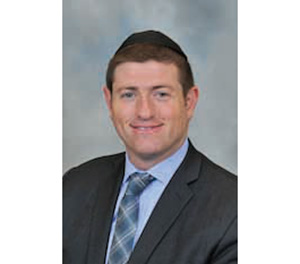
(This article was originally posted on eJewishPhilanthropy.com— https://ejewishphilanthropy.com/making-the-case-for-mentorship/)
I could not get out of the car.
It was a bright, clear morning in September, and I was parked in front of the sprawling front lawn of the school. “Just open the door and get out!” I told myself. But my feet refused to move. It didn’t make sense. This was supposed to be the moment where all of my efforts over the last five years paid off. While I was in college, after spending several summers as a counselor on the NCSY Summer Kollel, I made the decision to focus my life on teaching and impacting young people. And now, here I was. I had the dream job, teaching Torah at a great yeshiva high school. I had spent the previous year reaching out to friends and mentors, picking their brain about what to teach and how to teach it. Over the summer months, I had thrown myself into planning my classes. I was ready.
Or was I?
Looking back, I think my difficulty in getting out of that car was more than just nerves (of which there were plenty!). It had to do with the fact that I had spent so much time talking and thinking about teaching, so much time taking courses in graduate school and trying to learn from others. There was so much activity about it, but I had not yet engaged in it. What is my class really going to look and feel like? What if my lesson plan flops? What if I can’t gain any semblance of control over my students, and of course, at the worse possible moment, my principal walks in to observe the carnage?
I finally got out of the car that day and faced my new students. Over the course of that year, I had good days as well as truly horrible ones. It was an intense and often overwhelming learning process. I remember this pressure to keep a stiff upper lip, and to not let anyone, the students or even colleagues and supervisors, know that I was struggling. After all, I reasoned, they wanted an effective rebbe, not someone whose class always felt like one sarcastic student comment away from spinning out of control. With these walls I built up, it was harder to learn, to grow, to acknowledge that I didn’t have all the answers.
The irony is that while I felt alone in my classroom, I was not alone in my circumstances. In fact, I learned over time that my experience was fairly normal. Being a new teacher is hard. It can be overwhelming and isolating. When the experience is particularly challenging, it can lead teachers to simply leave. They may exit the profession entirely, or maybe they simply look to find another school.
I believe there is a better way. Fast forward to 2019. I have the privilege of serving in school leadership at the Yeshiva University High School for Boys/MTA, with a focus on helping teachers grow and develop.
One very powerful weapon in our educator support arsenal is mentorship, part of the larger framework for supporting new teachers that is provided by our partnership with the Jewish New Teacher Project (JNTP). At MTA, each new teacher is paired with an experienced teacher who serves as their mentor for the entire school year. JNTP engages our experienced teachers in an intensive two-year mentor-training program and works with participating new teachers in ongoing workshops both in person and online. But the bulk of the growth happens in the regular weekly mentor-new teacher meetings and observations that are part of the JNTP program. These meetings are designed as a “safe space” for new teachers, where they can share challenges and be vulnerable with a mentor who will engage them in a confidential and non-judgmental discussion. These partnerships are designed to provide the new teacher with an ally and an advocate who can help the teacher navigate the sometimes-challenging terrain of a new school. The regularity of the meetings, combined with observation data collected and mirrored back to the new teacher, provide a powerful learning cycle that can drastically impact the new teaching experience. I recently had the opportunity to meet with each of our new teachers as well as their mentors, to hear their reflections on the JNTP experience. These rich conversations have reinforced what I, as a JNTP mentor myself, have felt about the power of mentoring in positively impacting school culture and learning.
By Rabbi Dov Emerson
Rabbi Dov Emerson is the director of teaching and learning at the Yeshiva University High School for Boys (MTA). Dov can be reached via email at [email protected], and on Twitter @dovemerson.













